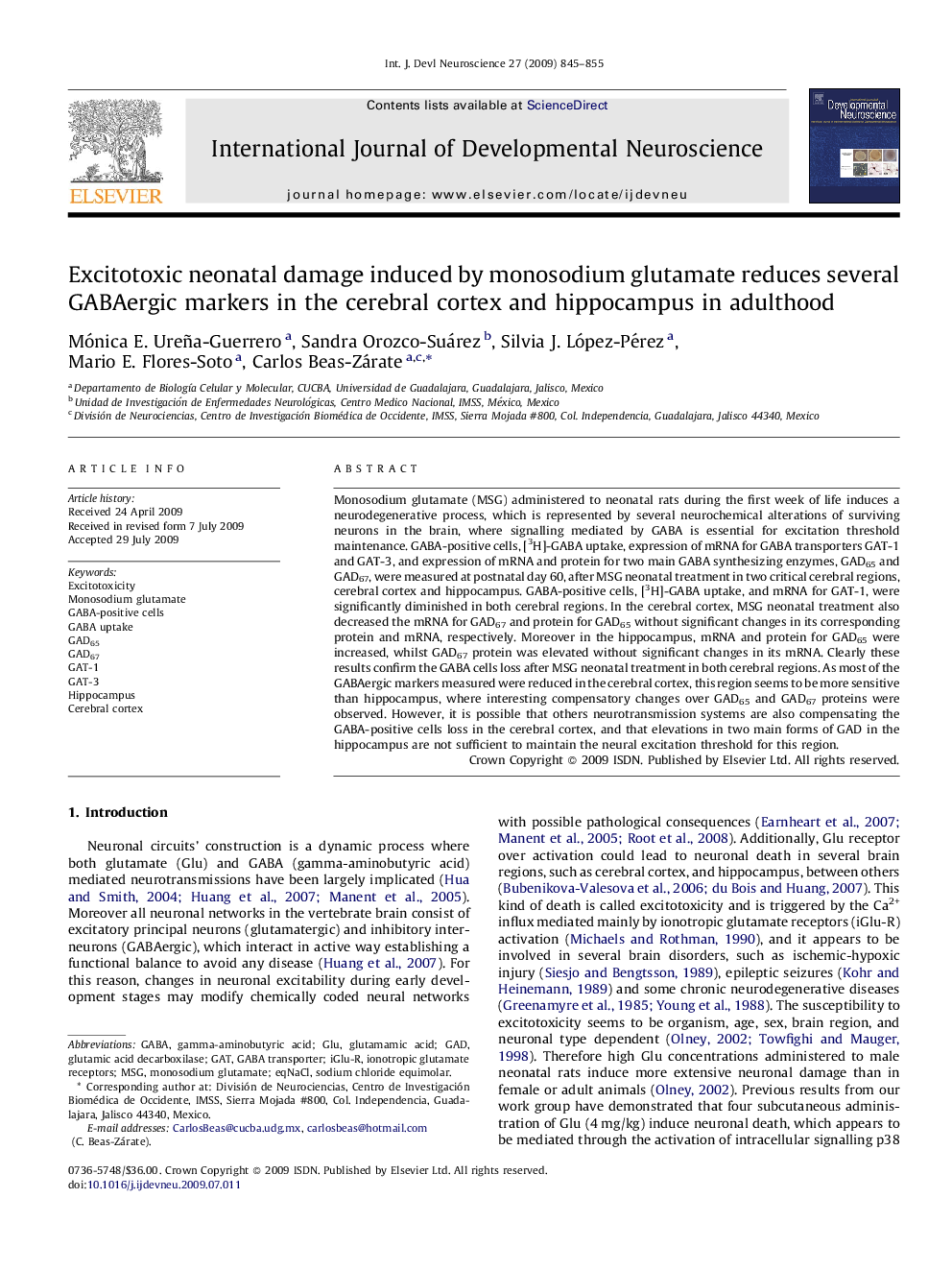| Article ID | Journal | Published Year | Pages | File Type |
|---|---|---|---|---|
| 2786910 | International Journal of Developmental Neuroscience | 2009 | 11 Pages |
Monosodium glutamate (MSG) administered to neonatal rats during the first week of life induces a neurodegenerative process, which is represented by several neurochemical alterations of surviving neurons in the brain, where signalling mediated by GABA is essential for excitation threshold maintenance. GABA-positive cells, [3H]-GABA uptake, expression of mRNA for GABA transporters GAT-1 and GAT-3, and expression of mRNA and protein for two main GABA synthesizing enzymes, GAD65 and GAD67, were measured at postnatal day 60, after MSG neonatal treatment in two critical cerebral regions, cerebral cortex and hippocampus. GABA-positive cells, [3H]-GABA uptake, and mRNA for GAT-1, were significantly diminished in both cerebral regions. In the cerebral cortex, MSG neonatal treatment also decreased the mRNA for GAD67 and protein for GAD65 without significant changes in its corresponding protein and mRNA, respectively. Moreover in the hippocampus, mRNA and protein for GAD65 were increased, whilst GAD67 protein was elevated without significant changes in its mRNA. Clearly these results confirm the GABA cells loss after MSG neonatal treatment in both cerebral regions. As most of the GABAergic markers measured were reduced in the cerebral cortex, this region seems to be more sensitive than hippocampus, where interesting compensatory changes over GAD65 and GAD67 proteins were observed. However, it is possible that others neurotransmission systems are also compensating the GABA-positive cells loss in the cerebral cortex, and that elevations in two main forms of GAD in the hippocampus are not sufficient to maintain the neural excitation threshold for this region.
